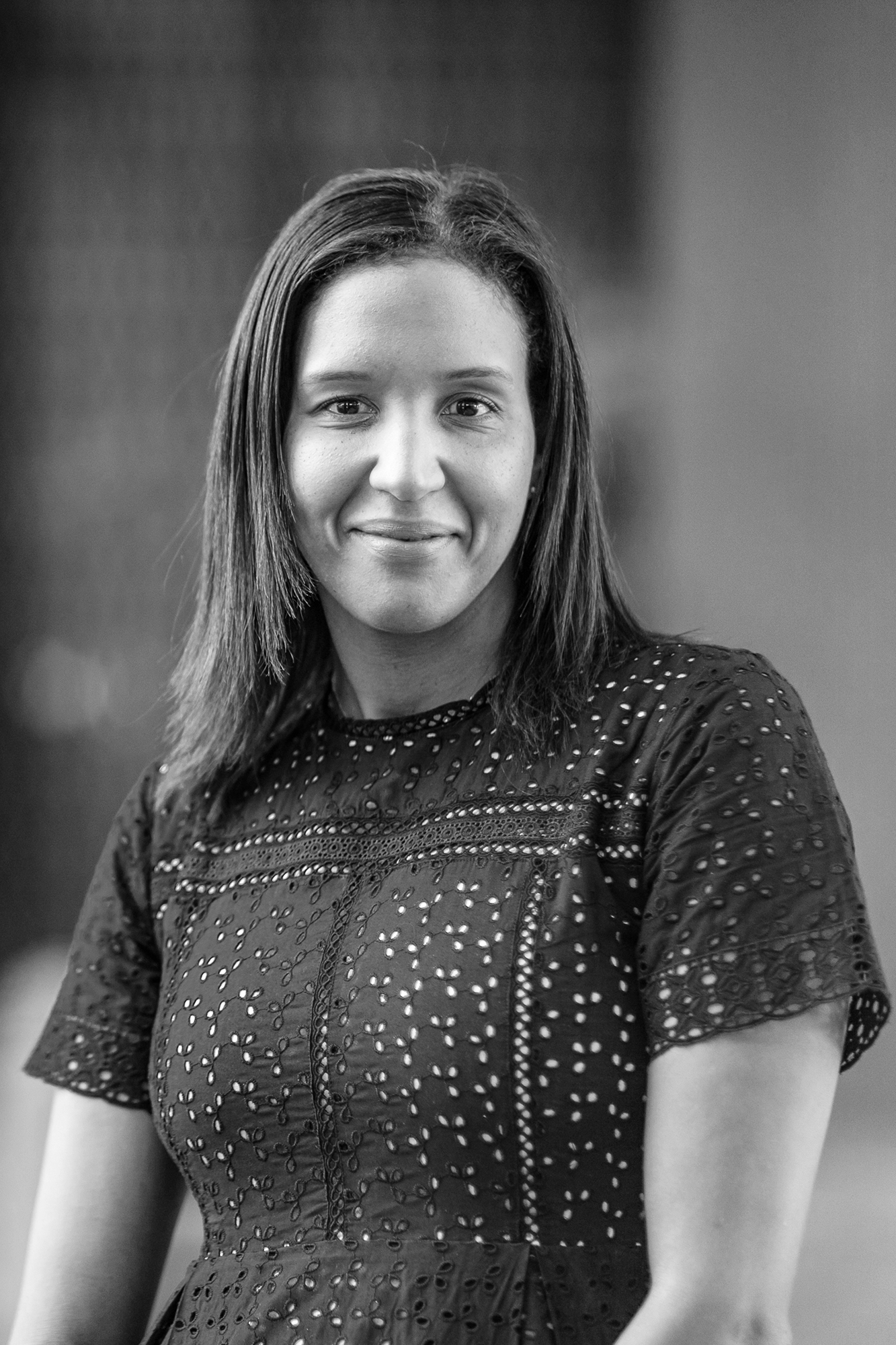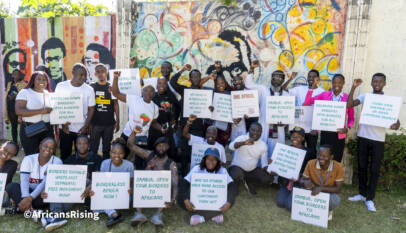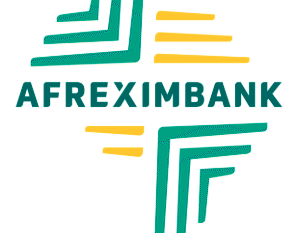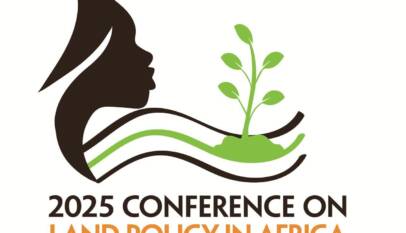INTERVIEW: “How Africa can eliminate Neglected Tropical Diseases” – Yacine Djibo
Yacine Djibo is the executive director of Speak Up Africa, a policy and advocacy action tank dedicated to catalyzing leadership, enabling policy change, and increasing awareness for sustainable development in Africa

Newspage: Tell us what Speak Up Africa is about?
Djibo: Speak Up Africa is a nonprofit policy and advocacy action tank, working to influence policy change as well as increase awareness about sustainable development across all sectors of society in Africa. Our mission is to ensure every man, woman and child is able to lead a healthy and productive life.
Through our platforms, relationships and partnerships with policymakers, we work to highlight decisions to ensure every member of society is able to contribute critically to the dialogues that could transform into concrete actions for sustainable development in Africa.
We are working with private sector leaders, communities and civil societies to form that network of individuals that will be able to bring about change. In terms of our key areas of work, we are currently focusing on public health and sanitation, specifically on malaria and Neglected Tropical Diseases (NTDs).
Newspage: like you said, Speak Up Africa is currently running a campaign focused on accelerating the control and elimination of Neglected Tropical Diseases (NTDs) in Africa – home to more than one-third of the 1.5 billion people living with NTDs in the world. How can Africa eliminate NTDs?
Djibo: Great question! We launched the ‘No to NTDs Campaign’ last year; aimed at increasing awareness and prioritization [of NTDs] in national plans to be able to accelerate the elimination of NTDs in Africa; the idea is to create a social movement that will allow for NTDs elimination by 2030. And if Africa is to be able to eliminate NTDs, it is of course going to be through awareness – which is part of the campaign we are implementing.
And of course also through ensuring stronger national health systems such that the national NTDs programmes will be able to reach the most vulnerable populations, in the most remote areas. Increasing domestic resources for funding the NTDs programmes is also key and essential to eliminating NTDs in Africa, and lastly, we believe it is very important to have a strong coordination among all the actors working in the sector, so as to maximize the available resources we have.
For example, in our own case, we are working with the World Health Organization’s regional office for Africa’s Expanded Special Project for Elimination of Neglected Tropical Diseases (ESPEN) project. It is an example of how to bring together various partners and leverage their expertise; we need to work together to be able to mobilize political, technical and financial resources to come up with a roadmap towards the elimination of NTDs, as defined by WHO.
Newspage: Most funding for campaigns against diseases in Africa, whether it is HIV/AIDs or malaria, are donor-driven. Why is domestic funding for campaigns against diseases in Africa necessary?
Djibo: I think it is critical, as you know, today there is a lot of support from donors but in order to truly eliminate diseases, we need to take ownership and that ownership will not come through donor funding; NTD programmes do not even enjoy donor funding like others. So, there is still a lot of gap even in terms of funding in general. In addition, I think it goes beyond financial resources; instead, it is also about having the technical resources however, it also requires money to be able to train all the different providers across the health system.
You also need that sense of community ownership i.e getting people in the community to be responsible, accountable and really understanding of how important it is for them to be able to be part of the campaign, and more importantly, take care of themselves as well as seek treatment. I think it is just fundamental on so many levels that African countries take ownership of their health issues, particularly Neglected Tropical Diseases.
Many of our countries have made commitment to allocate a certain percentage of their budget to public health but we know that is not being honored by most countries; there are some countries that are honoring the commitment but most of them are not doing so. At Speak Up Africa, we believe a crucial step in eliminating NTDs is achieving ownership at country level.
Newspage: Next July, you will be hosting a high-level side event at the African Union Summit in Niamey, Niger, to be chaired by HE Aissata Issofou, First Lady of Niger, which is also focused on your work on NTDs and tied to the attainment of the 2030 Sustainable Development Goals in the region. Can you shed more light on this event and your work around the SDGs in general?
Djibo: the First Lady of Niger HE Aissata Issofou is chairing this event which we are organizing on the sidelines of the next AU Summit happening in Niamey, Niger in July; she has been a big champion in the campaign for the elimination of NTDs in Africa. We have also been working with some of her fellow [African] first ladies to raise awareness among the first ladies on the importance of the work on the elimination of NTDs in Africa.
Specifically, the objective of the event is to be able to create a platform where different stakeholders can come together to discuss the challenges and opportunities that we are facing in Africa in the campaign against NTDs as well as some of the essential elements that need to be included in the strategy to be able to not only increase domestic resources but also have more efficient NTDs programmes. In addition to the First Lady of Niger, we are also going to have in attendance the minister of health in Niger, the regional director of WHO in the African region as well as the executive secretary of the African Leaders Malaria Alliance (ALMA).
We want to be able to bring together members of the civil society as well as other stakeholders in Niger to have a head-start conversation aimed at ensuring that the heads of state within the African region also prioritize NTDs; it is also a way of raising the profile of NTDs at the level of the African Union, as an organization. And with regards to our work in relation to the SDGs, we really believe that the SDGs are achievable through advocating for increased action, so this event is part of our campaign to eliminate NTDs by 2030; we understand that the elimination of NTDs will contribute to the broader efforts to achieve the SDGs in Africa.
AN: You are also part of the Pan-African Zero Malaria Starts With Me campaign, being jointly led by the AU and the RBM Partnership to End Malaria, which is aimed at eradicating malaria from the region. What will you say are the major challenges inhibiting Africa’s quest to end malaria?
Djibo: At Speak Up Africa, we are very proud that the campaign: Zero Malaria Start With Me started in Senegal and that we supported the government of Senegal to implement the campaign. Before it was subsequently presented by the President of Senegal [Macky Sall] to the AU Summit and now it is a Pan African campaign being co-led by the AU and RBM Partnership to End Malaria. In terms of what are the major challenges in Africa’s quest to end malaria, I will say that just like the NTDs, we need political commitments, financing and resources, not only from the government but also from the private sector, to fight malaria.
Again, we really need that community engagement. It is really not acceptable that a child dies every 2 minutes from malaria, yet when you speak to many people, it seems like that is something acceptable. People really need to take ownership and understand that there is something they can do about it. That was what led us to create this campaign and to continue to work around it.
We need to be having engagements at all level starting from the communities; making sure their sons and daughters sleep under Insecticide-Treated Nets (ITNs) and that they are receiving treatment on time. At regional level, we need to have engagements at ministerial and the level of heads of state. Also, we need to ensure the private sector has a role to play in the process and everyone understands that, if we work together, we will be able to achieve our goal.









